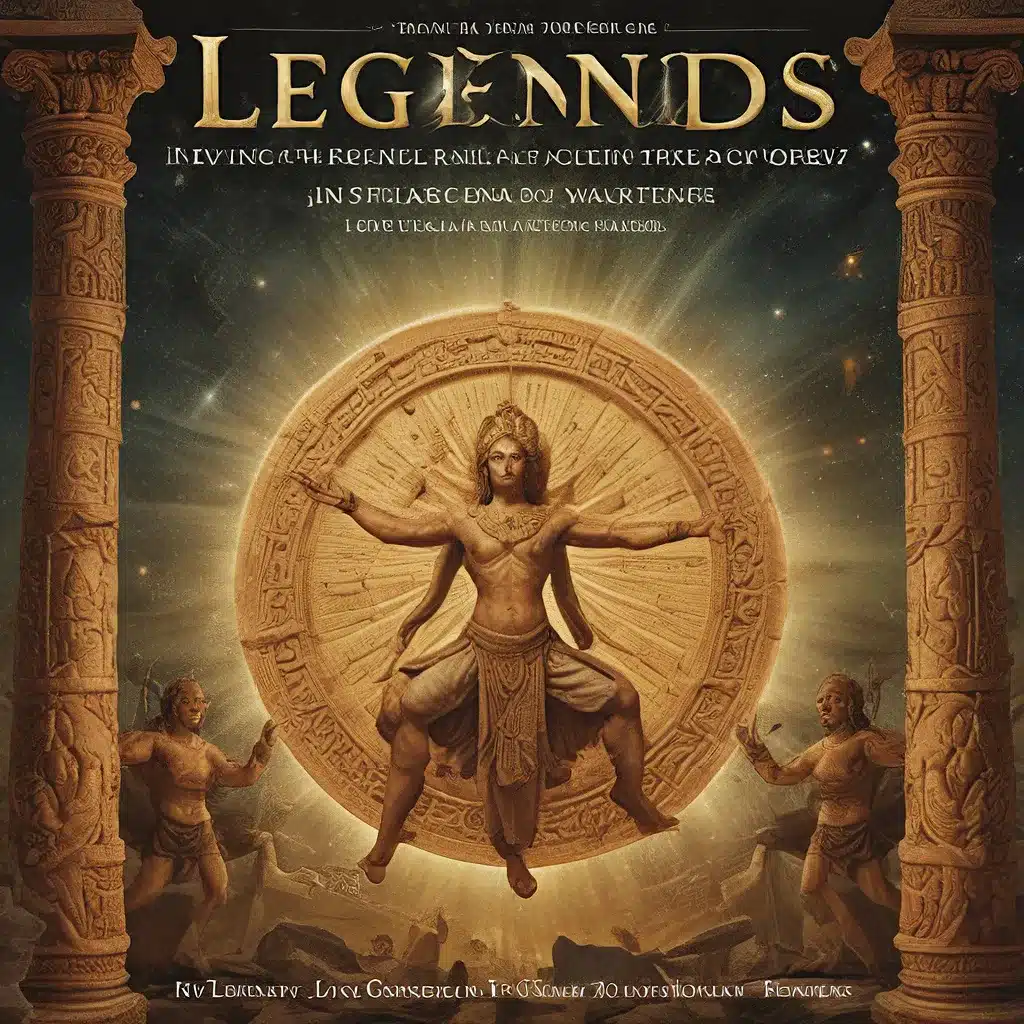
Unveiling the Mysteries of Lost Civilizations
Throughout history, humanity has been captivated by the allure of ancient cultures and the tantalizing glimpses they provide into the distant past. From the Manichaeism of the Middle East to the voodoo traditions of the Caribbean, the stories and beliefs of these once-prominent faiths continue to intrigue and mystify scholars and enthusiasts alike. While much of this esoteric knowledge has been lost to the ravages of time, recent archaeological discoveries and interdisciplinary research have shed new light on the practices and worldviews of these vanished civilizations.
One striking example of this resurgence of interest is the ongoing exploration of zombie folklore and its origins in Haitian voodoo culture. Long relegated to the realms of horror fiction and popular culture, these “reawakened corpses” have been the subject of renewed academic scrutiny, with researchers uncovering compelling evidence of their historical roots. The discovery of ancient Greek graves containing skeletons pinned down by heavy objects, presumably to prevent the dead from rising again, suggests that the fear of the undead has been with us for millennia.
Accounts of apparent “zombie” cases in Haitian folklore, such as the story of Clairvius Narcisse, who was reportedly buried alive and then revived, have lent credibility to the idea that these seemingly supernatural phenomena may have a basis in fact. The use of tetrodotoxin, a potent neurotoxin found in pufferfish, to induce a zombie-like state has been documented in medical literature, offering a possible scientific explanation for these uncanny occurrences.
Resurrecting Ancient Faiths: The Challenges and Possibilities
As captivating as these zombie legends may be, they represent only a small fraction of the wealth of knowledge that remains to be unearthed about the lost religions and belief systems of the past. The question of whether it is possible to “revive” these ancient faiths is a complex and multifaceted one, with no easy answers.
One of the key challenges lies in the fragmented and often speculative nature of our understanding of these vanished religious traditions. As highlighted in the Reddit discussion, many dead religions, such as Manichaeism, are not well-understood, with much of the available information being based on conjecture and limited historical records. Piecing together a comprehensive and accurate picture of their beliefs, practices, and day-to-day rituals is a daunting task that requires meticulous research and the integration of multiple academic disciplines.
Moreover, the question of what constitutes a “well-attested” religion that could potentially be revived is a matter of ongoing debate. The discussion on the DMAcademy subreddit delves into the complexities of resurrection and its far-reaching implications for the social, political, and economic structures of a society. In a world where the power of life and death is so closely intertwined with the divine, the re-emergence of ancient faiths could have profound and far-reaching consequences.
Uncovering the Secrets of the Past: Archaeological Breakthroughs
Despite these challenges, the field of archaeology has been making remarkable strides in unearthing and interpreting the remnants of long-forgotten civilizations. From the discovery of ancient Greek graves containing measures to prevent the dead from rising again to the ongoing exploration of Mayan and Aztec ruins, each new find has the potential to shed light on the beliefs, customs, and worldviews of these vanished cultures.
One particularly intriguing area of study is the role of zombies and the undead in ancient mythologies and folklore. The History.com article delves into the historical origins of the zombie concept, tracing its roots back to Haitian voodoo traditions and their connections to the horrors of slavery. These insights not only enhance our understanding of the cultural and societal contexts that gave rise to these beliefs but also challenge our preconceptions about the nature of the supernatural and the boundaries between life and death.
Moreover, the potential revival of ancient faiths is not merely an academic exercise; it holds profound implications for our understanding of the human experience across time and space. The discussions on the DMAcademy subreddit highlight the far-reaching consequences that the resurrection of the dead could have on the social, political, and economic structures of a society. From the widening of societal class gaps to the potential exploitation of this power by criminal organizations, the reemergence of these beliefs and practices could fundamentally reshape the very fabric of a world.
Embracing the Untold Stories of the Past
As we continue to unravel the mysteries of the past, it is important to approach these ancient civilizations and their belief systems with a sense of humility and open-mindedness. The lost religions and cultural practices that once defined the lives of millions deserve to be studied, understood, and appreciated in their own right, rather than being dismissed or romanticized. By embracing the untold stories of the past, we can gain a deeper understanding of the human experience and the diverse ways in which individuals and communities have grappled with the fundamental questions of existence.
The thelostkingdoms.com website is dedicated to exploring these captivating and often overlooked aspects of ancient history, providing a platform for scholars, enthusiasts, and curious minds to engage with the rich tapestry of human civilization. Through a combination of in-depth articles, interactive features, and expert analysis, this site aims to shed light on the forgotten narratives that have shaped the course of human history.
So, let us embark on a journey of discovery, delving into the legends and lore of ancient worlds, and uncovering the secrets that have long been hidden from view. By doing so, we may just find that the past holds the key to unlocking a deeper understanding of the present and the future.


